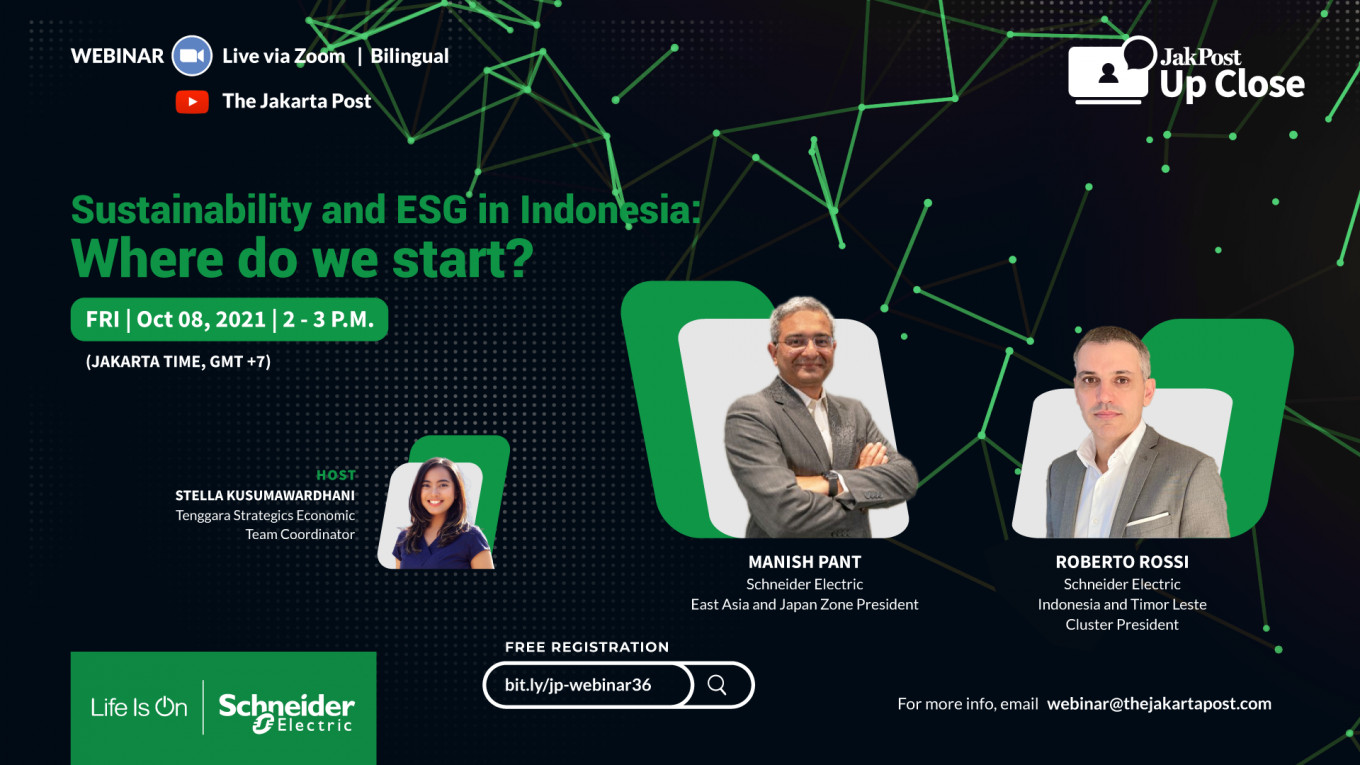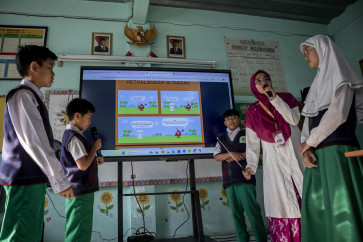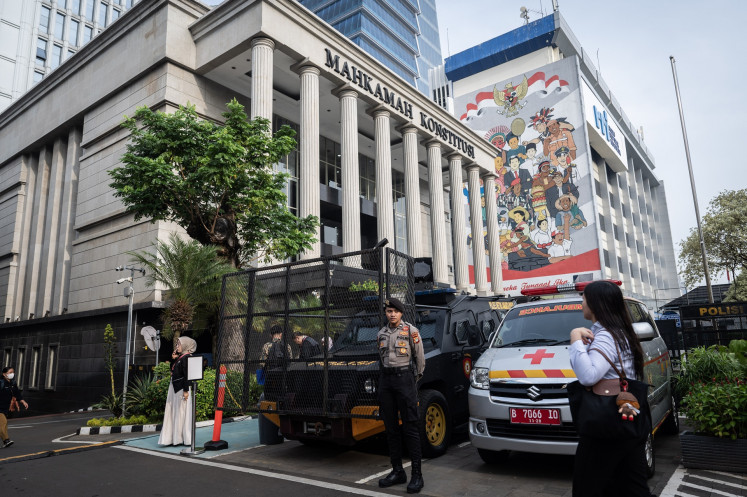Sustainable companies 'attract' investors, talents to Indonesia
Change text size
Gift Premium Articles
to Anyone

G
lobal service providers are urging businesses in Indonesia to adopt green energy and hybrid cloud solutions but also note that the country needs to address deficiencies in regulations to support companies in adopting environmental, social and governance (ESG) standards.
Schneider Electric’s Indonesia and Timor Leste cluster president Roberto Rossi suggested the government consider formulating effective regulations that could encourage investors and companies to incorporate ESG criteria into their decisions and activities and help Indonesia achieve its net-zero emissions target by 2060.
“Sustainable companies attract investors and talent,” he said during The Jakarta Post’s UpClose webinar on Friday, adding that Indonesia was going in the right direction in terms of carbon incentives and planning.
Nevertheless, Indonesia has shown significant progress in implementing its carbon pledge, said Rossi, citing the country’s achievement in reducing forest fires, reducing the deforestation rate and improving electric vehicle (EV) infrastructure.
The issuance of green infrastructure in project finance bonds is expected to rise as more governments adopt a net-zero carbon emissions target by 2050, a Fitch Ratings report, which was published in August, shows.
Separately, Faisal Rachman, an economist at state-owned Bank Mandiri, said ESG implementation had become the government’s main focus, considering the medium- and long-term development plan.
However, ESG implementation was not progressing as fast as expected due to the COVID-19 pandemic and lack of sectoral regulatory updates, he said, citing the need for material analysis regulation in the manufacturing sector. As of 2020, he noted, only 14 percent of listed companies had submitted their ESG report, citing a report by the Indonesia Business Coalition for Women Empowerment (IBCWE).
“Obstacles [in ESG implementation] include inadequate infrastructure and lack of human resources in ESG-related affairs in business,” he told The Jakarta Post on Monday.
Read also: A glance at ESG, why it matters and opportunities ahead
Indonesia through the Financial Services Authority (OJK) has published the 2021-2025 Sustainable Financial Roadmap and enacted Presidential Regulation No. 59/2017 on the implementation of sustainable development goals (SDGs) in the country.
Sustainable financing largely refers to any form of financial service that takes into account the ESG criteria to achieve the broader goal of sustainable development.
According to the OJK road map, sustainable financing in the financial services industry consists of several efforts to mitigate the impact of climate change, shift toward a competitive low-carbon economy and promote environmentally friendly investments.
Schneider Electric’s East Asia and Japan zone president Manish Pant said electricity was the most efficient energy and the best vector for decarbonization. Moreover, digital technology eliminated waste and drove efficiency, Manish said. “A solution to fight climate change is a more electric and more digital world,” he said on Friday.
To achieve the net-zero emissions target, he underlined that the government and businesses needed to have a clear goal and commitment.
In the Indonesian Center for Risk Management and Sustainability's (CRMS) 2019 National ESG Survey, which observed 17 companies across 16 industrial sectors in Indonesia, the majority of respondents had not considered ESG criteria in decision-making processes and other business processes in the organization. The majority of respondents came from the financial sector (33 percent) and the mining and quarrying sector (9 percent).
Read also: Supportive rules key to Indonesia’s green investment future
Sustainable Trade Initiative (IDH) chairman Fitrian Ardiansyah said technical assistance was critical to increase domestic companies’ and banks’ capabilities in understanding and implementing ESG standards. Foreign investors should also actively ensure that ESG safeguards are understood and implemented, he added.
Fitrian went on to say that the government should consider strengthening inter-ministerial coordination, for instance, between the Finance Ministry and Investment Ministry, to oversee ESG implementation and formulating clear incentive and disincentive mechanisms to private companies and banks.
“Cooperation between the government and private sector needs to be strengthened to incorporate net-zero emissions targets into domestic companies and banks,” he told the Post, also on Monday.









